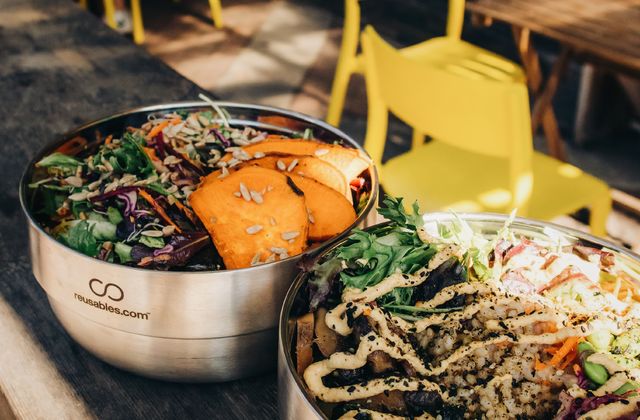What is it?
Kuradashi is a Japanese business which aims to reduce food loss and waste. As a business it sells various types of foods that are still edible, which otherwise would be thrown away, using an app and platform for end-consumers. Waste comes from partners (big, branded suppliers of food, such as Coca Cola and Nestle), wholesalers and retailers. A portion of the proceeds (both monetary and actual food) are donated to a variety of non-profit organizations, ranging from disaster relief to environmental protection. Kuradashi was founded in 2014, received a Benefit Corporation status in 2022, and got listed on the Tokyo Stock Exchange in June 2023.
Why is this important?
Around 40% of food produced for human consumption is being wasted (WWF, 2024). This means that about 2.5 billion tonnes of food go uneaten globally each year, accounting for around 10% of global greenhouse gas emissions (WWF, 2024). Food waste prevention is also a crucial part of the EU’s Action Plan for the Circular Economy, which seeks to explore every opportunity to strengthen the sustainability of the food system (European Parliament, 2015).
Main resource strategy: Closing the loop by preventing surplus food from being wasted.
Other resource strategies: To a smaller extent, also regeneration, through donations which include non-profits with environmental and social causes.
Business model aspects:
- Value Proposition: For consumers, the platform gives access to food at a bargain price (on average 60%), but it also allows them to feel good about reducing food waste and contributing to a good cause through the donation mode. For Kuradashi’s partners (e.g. brands, wholesalers, retailers) it allows them to reduce waste and redistribute inventory. Through the Kuradashi Fund, nonprofit organizations receive part of the proceeds of the brand for their social and environmental causes.
- Value Creation & Delivery: on the Kuradashi App, consumers can select foods that will be delivered to them within a few days. Prices are a fraction of the typical prices of these goods.
- Value Capture: Membership of the platform and app is free for customers. Customers pay only for the transactions they make when using the app and delivery service.
Strategies for degrowth/ sufficiency:
Awareness raising: Kuradashi tackles food waste prevention in multiple ways: directly through its platform but also via education programmes e.g. with university students about food waste (source: interview, 2024). Through the Kuradashi Fund it also supports the causes of other organisations. For example, a total of 42 companies and municipalities donated products to a total of 170 food banks, via the Kuradashi network.
Green alternative: the Kuradashi platform supports the sustainable consumption of food, actively aiming to reduce food waste, by selling food that would otherwise get wasted (source: interview, 2024). Users get the ‘repurposed’ food delivered at home that they ordered via the app.
Business model experimentation practices:
Kuradashi started in 2014 in Tokyo with its mission of “continuing to be a good company” to turning “Mottainai” (Japanese term related to a sense of regret related to waste) to value and launched its e-commerce site in February 2015.
At the time of writing (2024) Kuradashi has nearly 515,000 members and more than 1600 partner companies working with them, such as Nestle and Coca Cola (interview with CEO & Sustainability Director, 10 April 2024).
Sustainability outcomes:
So far, the accumulated donated amount via its business model is 120 million Yen (around 1 million USD) (source: interview, 2024).
The accumulated quantity of reduced food loss by Kuradashi is more than 20k tons (as of 2024).
In 2020, Kuradashi won the Food Loss Reduction Promotion Award by the Japanese Ministry of the Environment (Ministry of the Environment Government of Japan (2020).
Sources:
European Parliament (2015). COMMUNICATION FROM THE COMMISSION TO THE EUROPEAN PARLIAMENT, THE COUNCIL, THE EUROPEAN ECONOMIC AND SOCIAL COMMITTEE AND THE COMMITTEE OF THE REGIONS Closing the loop - An EU action plan for the Circular Economy. Accessed 10 April 2024 at: https://eur-lex.europa.eu/legal-content/EN/TXT/?qid=1453384154337&uri=CELEX:52015DC0614
Interview (2024). Interview with Kuradashi CEO Kohei Kawamura & Sustainability Director Naoko Nakano, 10 April 2024.
Ministry of the Environment Government of Japan (2020). 2020 Food Loss Reduction Promotion Award. Accessed 24 April 2024 at: https://www.env.go.jp/recycle/foodloss/event02.html
WWF (2024). Driven to waste: The Global Impact of Food Loss and Waste on Farms. Accessed 10 April 2024: at: https://wwf.panda.org/discover/our_focus/food_practice/food_loss_and_waste/driven_to_waste_global_food_loss_on_farms/
***
About project Circular X
Project Circular X is about ‘Experimentation with Circular Service Business Models’. It is an ambitious research project funded by the European Research Council (ERC) which supports top researchers from anywhere in the world. Project CIRCULAR X runs from 2020-2026. The project is led by Principal Investigator (PI) Prof Dr Nancy Bocken, who is joined by a multidisciplinary team of researchers at Maastricht Sustainability Institute (MSI), Maastricht School of Business and Economics, Maastricht University. The project cooperates with businesses who want to innovate towards the circular economy.
Project Circular X addresses a new and urgent issue: experimentation with circular service business models (CSBMs). Examples of such new business models include companies shifting from selling products to selling services and introducing lifelong warrantees to extend product lifetimes. However, CSBMs are far from mainstream and research focused on experimentation is little understood. The research aims to conduct interdisciplinary research with 4 objectives:
- Advancing understanding of CSBMs; their emergence and impacts
- Advancing knowledge on CSBM experimentation
- Developing CSBM experimentation tools
- Designing and deploying CSBM experimentation labs
Funding source
This project has received funding from the European Research Council (ERC) under the European Union’s Horizon 2020 research and innovation programme, grant agreement No. 850159.
Using of this information
When you refer to this case, please use the following source:
Circular X. (2024) Case study: Kuradashi – Food Waste Reduction. Accessed from www.circularx.eu



